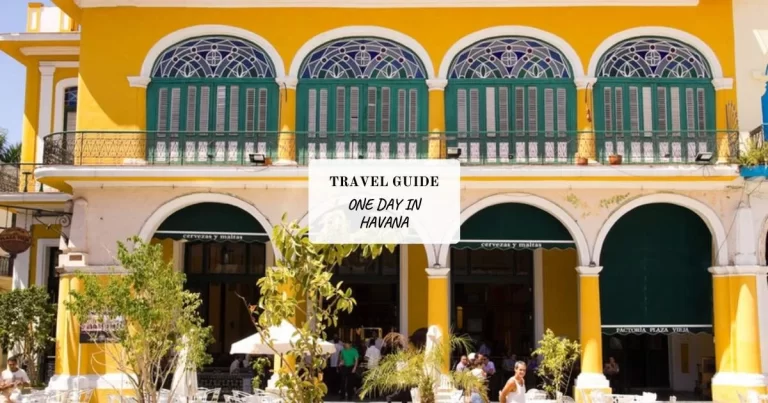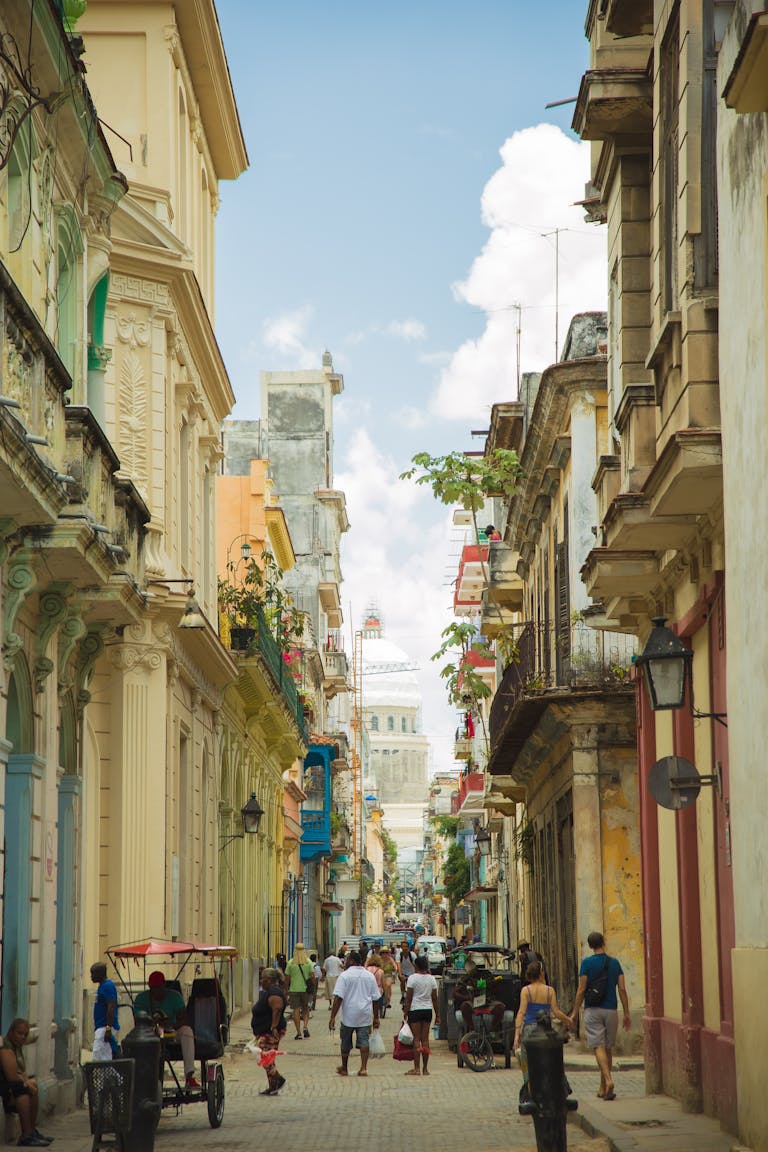Is South Africa a Safe Country? Find Out Here
South Africa is a popular tourist destination known for its beautiful landscapes and rich culture. From the lively streets of Cape Town to the awe-inspiring safaris in Kruger National Park, there are endless attractions that capture the imagination. But amidst all this beauty, one question often arises: Is South Africa safe?



When planning a trip to this diverse and fascinating country, it’s important to consider travel safety. While many visitors have had amazing experiences, it’s crucial to understand and address the safety issues that exist.
In this article, we will delve into various aspects of safety in South Africa.
Understanding the Crime Landscape in South Africa
Crime rates in South Africa are a pressing concern for both residents and visitors. The country frequently ranks high in global crime statistics, making it essential to understand the landscape when planning a trip. Various types of crimes affect different areas and demographics, ranging from violent crimes to petty misdemeanors. Source
Violent Crimes
Violent crimes pose a significant threat, particularly in urban settings. Here are some examples:
- Armed robbery: This crime involves the use of weapons to intimidate victims into surrendering valuables. It often occurs in busy city areas and secluded spots alike.
- Carjacking: Criminals target vehicles at traffic lights, stop signs, or in parking areas. Carjacking incidents can be highly traumatic, as they usually involve threats or actual violence.
- Murder: South Africa has one of the highest murder rates globally. While this crime primarily affects local communities, it’s crucial for visitors to be aware of high-risk areas.
Supporting data from 2022 shows that there were approximately 20,000 murders reported, highlighting the severity of violent crime. Urban centers such as Johannesburg and Cape Town have higher incidences compared to rural areas.
Petty Crimes
Petty crimes are widespread and can significantly impact tourists. Some common examples include:
- Theft: This includes pickpocketing and snatching of items like phones and wallets. Such incidents typically occur in crowded places like markets or public transportation hubs.
- Scams: Tourists may encounter various scams, including fake tour guides and overpriced services.
- Opportunistic crime: This category covers minor offenses driven by opportunity rather than premeditation. Examples include unattended bags being stolen or unlocked cars being broken into.
Data indicates that theft is one of the most common crimes affecting tourists, particularly in tourist-heavy zones such as Cape Town’s waterfront or Durban’s beaches.
Urban-Rural Dynamics
Crime dynamics vary significantly between urban and rural areas:
- Urban Areas: Cities like Johannesburg, Cape Town, and Durban experience higher crime rates due to dense populations and economic disparities.
- Townships: These areas surrounding major cities often have elevated crime levels but are also cultural hubs worth visiting under guided conditions.
- City Centers: Central business districts see frequent petty crimes targeting unwary tourists.
- Rural Areas: Crime rates tend to be lower outside major cities. However, some remote regions may lack adequate law enforcement presence.
Understanding these dynamics helps you make informed decisions about where to stay and which areas to avoid during your visit. Hotels with robust security measures or guided tours provide added safety.
Exploring South Africa requires vigilance due to its complex crime landscape. By distinguishing between different types of crimes and recognizing the urban-rural divide, you can better navigate the country’s risks while enjoying its rich offerings.
Influencing Factors and Socioeconomic Issues
High crime rates in South Africa are deeply intertwined with several influencing factors, particularly socioeconomic inequalities and drug-related problems source.
Socioeconomic Inequalities
South Africa remains one of the most unequal countries globally, with stark contrasts between wealth and poverty. These disparities create a fertile ground for criminal activities as individuals in impoverished areas often resort to crime out of necessity or lack of opportunity.
- Unemployment: With unemployment rates hovering around 30%, many people lack stable income sources, pushing some towards illegal means to survive.
- Education: Limited access to quality education further exacerbates the problem. Poor educational outcomes restrict employment opportunities, perpetuating the cycle of poverty and crime.
- Housing: Overcrowded informal settlements often lack basic services, making them hotbeds for criminal activities. The absence of adequate law enforcement in these areas contributes to the prevalence of crime.
Drug Abuse
Drug abuse significantly impacts crime rates in South Africa. Substance addiction fuels various forms of criminal behavior, including violent crimes and petty theft.
Addiction-driven Crime: Individuals addicted to drugs may commit theft, robbery, or other crimes to fund their habits. This not only endangers public safety but also strains law enforcement resources.
Narcotics Trade: The illegal drug trade is a major contributor to organized crime. Gangs involved in drug trafficking often engage in violent confrontations over territory and control.
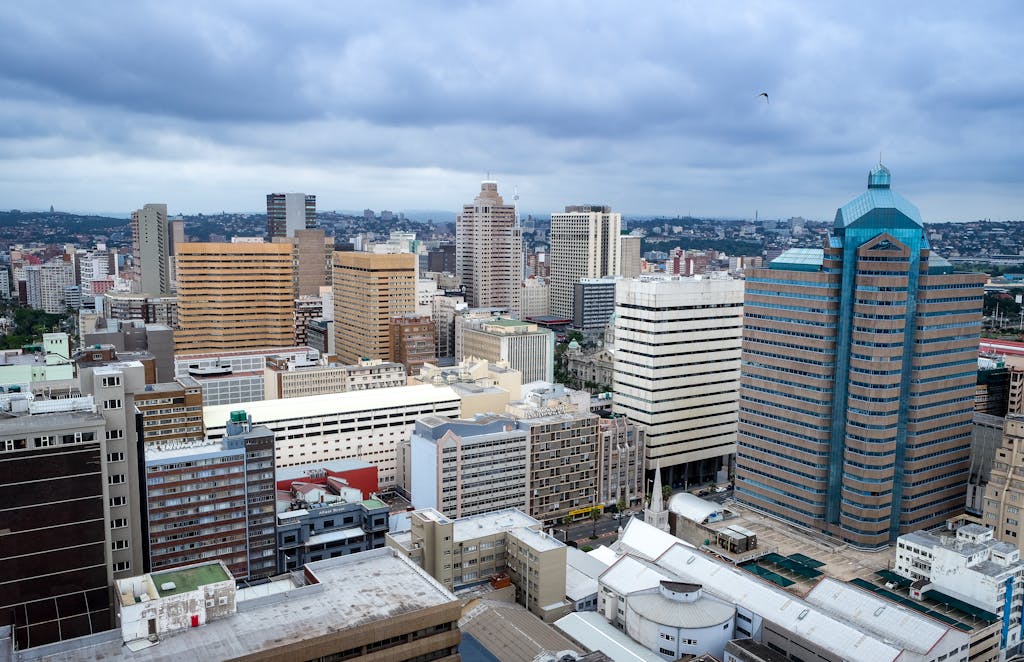
Additional Contributing Factors
Several other elements also influence the crime landscape:
- Urbanization: Rapid urbanization without corresponding infrastructure development leads to unplanned settlements and increased crime rates.
- Social Disintegration: The breakdown of traditional family structures and community support systems leaves many without social safety nets, driving some toward criminal activities.
Understanding these underlying factors is crucial for addressing the root causes of crime in South Africa. Effective solutions require comprehensive approaches that tackle both the symptoms and sources of criminal behavior.
1. Violent Crimes: A Closer Look
Armed Robbery
Armed robbery is a major issue in South Africa. According to the South African Police Service (SAPS), there are many cases of armed robbery, including home invasions and business robberies. These crimes mostly happen in cities like Johannesburg and Cape Town, targeting both locals and tourists. The high unemployment rate and socioeconomic inequalities contribute to the frequency of these crimes.
Carjacking
Carjacking is another serious problem, especially in urban areas. SAPS reports show that carjacking incidents are most common in Gauteng province, which includes Johannesburg and Pretoria. Criminals usually use force or threats to steal vehicles at traffic lights or intersections. Knowing the risk can help you take preventive measures such as avoiding driving alone at night or using secure parking facilities.
Murder
South Africa has one of the highest murder rates in the world. Data from SAPS shows that the murder rate varies greatly across different provinces. For example, KwaZulu-Natal and Western Cape have some of the highest murder rates in the country. This alarming statistic emphasizes the importance of staying alert, especially in areas known for higher crime rates. Source.
Comparison with Global Averages
When comparing violent crimes in South Africa to global averages, it’s clear that the country faces unique challenges. According to international crime statistics, South Africa’s murder rate is significantly higher than many countries source. but comparable to other nations with similar socioeconomic issues. For example:
- United States: Lower murder rate compared to South Africa.
- Brazil: Comparable murder rates, reflecting similar social issues.
- Japan: Significantly lower murder rate.
Areas Most Affected by Violent Crimes
Certain areas within South Africa are more prone to violent crimes:
- Johannesburg: Known for high rates of armed robbery and carjacking.
- Cape Town: Particularly dangerous in certain districts like Nyanga and Khayelitsha.
- Durban: Notable for instances of violent crime, although less frequent than Johannesburg or Cape Town.
Staying informed about these high-risk areas can help you plan safer travel routes and accommodations.
2. Petty Crimes: A Widespread Issue for Tourists
When visiting South Africa, tourists often face the problem of petty crimes specifically targeting them. While these crimes may not be as serious as violent ones, they can still have a significant impact on your travel experience.
Common Forms of Petty Crime
Here are some examples of the types of petty crimes that tourists may encounter in South Africa:
- Pickpocketing and Bag Snatching:
- Pickpockets often operate in crowded areas such as markets, public transport, and tourist hotspots.
- Bag snatchers may target individuals walking alone or distracted by their surroundings.
- Scams and Fraud:
- Scammers may pose as police officers asking for identification or levying on-the-spot fines.
- Credit card fraud at ATMs and restaurants is also common, where skimming devices capture card details.
- Opportunistic Theft:
- Leaving valuables unattended in public places like beaches or cafes invites opportunistic theft.
- Theft from vehicles, especially rental cars, is frequent when items are left visible on seats.
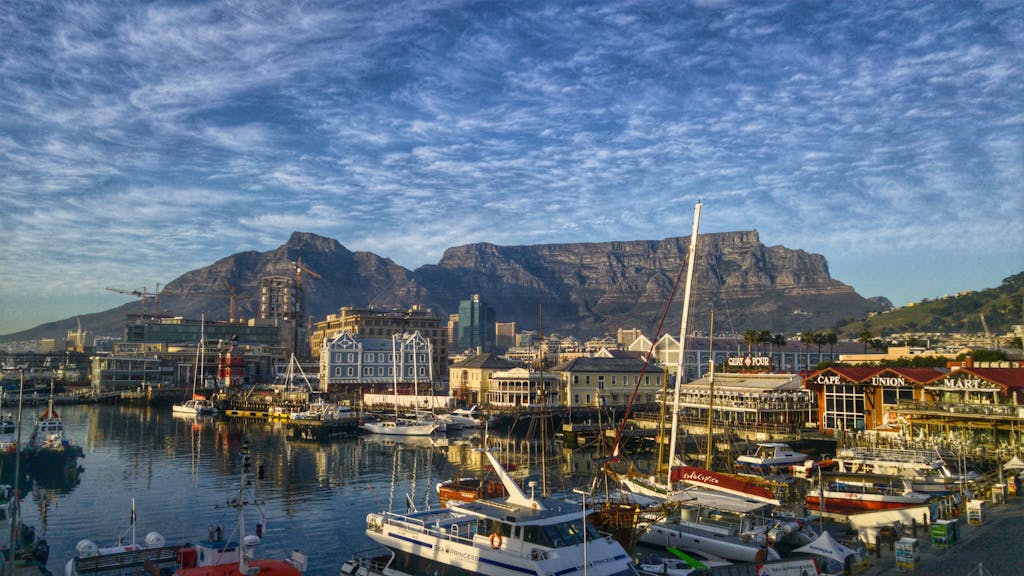
Practical Tips to Avoid Petty Crime
To protect yourself from falling victim to these types of crimes, here are some practical tips you can follow:
- Stay Vigilant in Crowded Areas:
- Always keep an eye on your belongings and be cautious of anyone trying to distract you.
- Use anti-theft bags with lockable zippers and carry them in front of you.
- Avoid Displaying Valuables:
- Refrain from wearing flashy jewelry or using expensive gadgets openly.
- Keep your wallet, phone, and other valuables out of sight in secure pockets.
- Be Skeptical of Unsolicited Help or Requests:
- Politely decline help from strangers offering unsolicited assistance, especially at ATMs.
- Verify the identity of anyone claiming to be law enforcement by asking for proper identification and contacting local authorities if necessary.
- Secure Your Accommodation:
- Choose accommodations with good security measures like safes and secure access points.
- Always lock doors and windows when leaving your room, even for short intervals.
- Use Reputable Service Providers:
- Opt for registered taxis or ride-sharing services over unlicensed cabs.
- Book tours through reputable agencies to avoid falling prey to scam artists posing as tour guides.
Staying Informed
It’s important to stay updated on the latest information regarding safety issues in the area you’re visiting. Here are some ways you can do this:
- Regularly check travel advisories and local news updates for information on recent scams or crime hotspots.
- Engaging with locals or fellow travelers can also provide insights into current safety concerns and recommended precautions.
By staying aware and taking these practical steps, you can minimize the risk of becoming a victim of petty crimes targeting tourists during your visit to South Africa.
Travel Advisories, Safety Measures, and Precautions
Travel advisories are important for understanding how to stay safe while traveling in South Africa. These advisories are issued by governments and international organizations to inform travelers about potential risks and necessary precautions. They provide information about the current security situation and highlight areas that may be more dangerous. Source
Essential Safety Measures for Tourists
To protect yourself and your belongings while exploring South Africa, consider the following safety tips and precautions:
- Stay Informed: Regularly check travel advisories from reputable sources such as your home country’s embassy or consulate.
- Secure Accommodations: Choose accommodations with strong security measures like 24-hour surveillance, secure entry points, and safes for valuables.
- Avoid Risky Areas: Stay away from high-crime areas, especially informal settlements and townships unless you’re with a knowledgeable local or reputable guide.
- Limit Nighttime Activities: Don’t walk alone after dark, especially in unfamiliar areas. Use trusted transportation options like pre-arranged taxis or rideshare services.
- Keep Valuables Hidden: Avoid displaying expensive items such as jewelry, cameras, or smartphones in public places. Use a money belt or hidden pouch to carry cash and important documents.
- Stay Alert: Pay attention to your surroundings at all times. Be on the lookout for suspicious behavior and trust your instincts if something doesn’t feel right.
- Emergency Contacts: Have a list of emergency contacts including local police, medical services, and your country’s embassy.
By following these safety measures and staying aware of your surroundings, you can significantly reduce the risks associated with traveling in South Africa.
1. Staying Safe on the Go: Transportation and Street Smarts
Navigating South Africa’s bustling cities and scenic routes requires a keen sense of transportation safety and street awareness. Understanding the safest ways to travel can significantly enhance your experience.
Safe Travel Practices
Pre-arranged Taxis vs. Public Transport
- Pre-arranged Taxis: Opt for reputable taxi services or ride-hailing apps like Uber or Bolt. These options provide a more secure and reliable means of transportation compared to hailing a cab off the street.
- Public Transport: While public transport such as minibuses and trains is widely used by locals, it may not always be the safest choice for tourists. If you must use public transport, avoid traveling alone, especially at night, and stick to well-populated routes.
Avoiding Valuables
Displaying valuables in public areas can make you a target for opportunistic crimes. It’s essential to adopt practices that minimize risk:
- Conceal Valuables: Keep your phone, camera, and other electronic devices out of sight when not in use.
- Minimal Jewelry: Wear minimal jewelry and avoid flashy accessories that can attract unwanted attention.
- Secure Bags: Use cross-body bags or backpacks that are difficult to snatch, and keep them zipped and close to your body.
Street Awareness
Remaining alert and aware of your surroundings is crucial when exploring South Africa’s diverse streetscapes.
- Stay Vigilant: Always be conscious of people around you. Trust your instincts; if something feels off, seek a safer environment immediately.
- Stick to Well-Lit Areas: Avoid walking alone after dark, particularly in unfamiliar areas. Choose well-lit streets and pathways whenever possible.
- Know Emergency Contacts: Save local emergency numbers on your phone so you can quickly access help if needed.
By prioritizing transportation safety, avoiding valuables exposure, and maintaining high street awareness, you’ll be better equipped to enjoy all that South Africa has to offer while staying safe.
2. Navigating Risky Areas: Informal Settlements and Townships
Visiting informal settlements and townships in South Africa can offer a glimpse into the country’s vibrant culture and history, but these areas are often considered high-risk due to elevated crime rates. Informal settlements, characterized by makeshift housing and limited infrastructure, can be hotspots for opportunistic crimes like theft and scams.
Potential Dangers:
- High Crime Rates: These areas experience higher incidences of violent crimes such as armed robbery and assault.
- Lack of Policing: Limited police presence can result in slower response times to incidents.
- Unfamiliar Terrain: Navigating these areas without local knowledge increases the risk of getting lost or inadvertently entering dangerous zones.
Safety Recommendations:
- Seek Local Guidance:Always consult with locals or hotel staff before planning a visit.
- Rely on trusted sources for advice on which settlements or townships might be safer to explore.
- Join Organized Tours:Opt for guided tours offered by reputable companies that specialize in township tourism.
- These tours often include local guides who are familiar with the area, enhancing your safety.
- Stay Alert and Cautious:Avoid visiting these areas after dark when criminal activity is more prevalent.
- Keep personal belongings secure and out of sight to minimize the risk of theft.
Exploring informal settlements and townships can be a rewarding experience if done safely. Aligning with knowledgeable locals or organized tours significantly mitigates risks, allowing you to appreciate the unique aspects of South African culture without compromising your safety
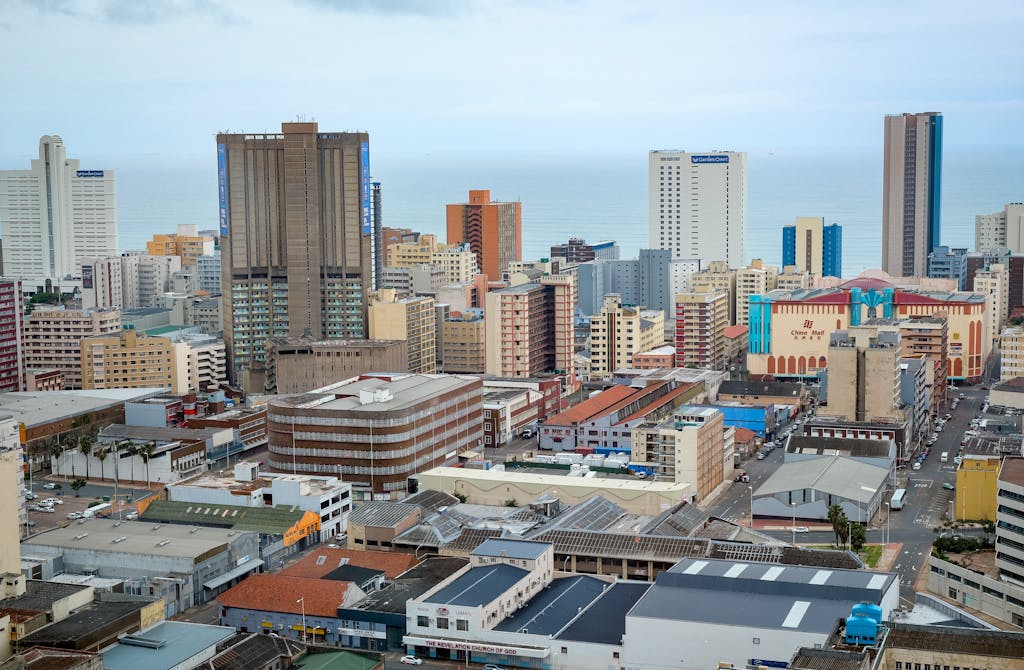
Dealing with Civil Unrest: Protests and Demonstrations
Demonstrations and political protests are a frequent occurrence in South Africa’s socio-political landscape. These events often arise due to socioeconomic grievances, labor disputes, or political tensions. While many protests are peaceful, there have been instances where they turn violent, posing risks to bystanders and travelers.
Frequency and Nature of Protests
- Common Causes: Protests can be sparked by issues such as service delivery failures, unemployment, wage disputes, and political dissatisfaction.
- Potential for Violence: Although many protests start peacefully, they can escalate quickly. This escalation can lead to clashes between protesters and law enforcement, road blockages, or even vandalism.
Staying Safe During Protests
If you find yourself near a demonstration:
- Stay Informed: Regularly check local news outlets and social media for updates on any planned protests or areas to avoid.
- Avoid Crowds: Steer clear of large gatherings or marches. These can become hotspots for confrontations.
- Listen to Authorities: Follow any instructions given by local authorities or your tour guide. They often have the most up-to-date information on safety conditions.
- Have an Exit Plan: Always know your escape routes when entering crowded areas. Identify safe places nearby where you can seek shelter if needed.
- Keep Essentials Handy: Carry essential items like water, a charged phone, identification documents, and some cash in case you need to leave quickly.
Understanding Local Context
Understanding the local context can help you navigate these situations more safely:
- Historical Context: South Africa has a long history of civil unrest rooted in its struggle against apartheid and ongoing efforts towards equality.
- Economic Factors: High levels of unemployment and economic disparity often contribute to the frequency of protests.
Maintaining awareness and exercising caution will significantly enhance your safety during any encounters with civil unrest in South Africa.
The Impact of Load Shedding on Safety in South Africa
Load shedding refers to the deliberate shutdown of electric power in parts of a power-distribution system. This measure is intended to prevent the entire system from failing when demand exceeds supply. In South Africa, load shedding has become a common occurrence, affecting both daily life and crime levels.
Implications for Daily Life
- Disruptions in Services: Frequent power outages can disrupt essential services, from water supply to telecommunications. Businesses and homes alike face challenges maintaining operations during load shedding periods.
- Economic Impact: For businesses, particularly small enterprises, load shedding can lead to significant financial losses due to halted production and damaged equipment.
- Quality of Life: Residents experience reduced quality of life, dealing with irregular power availability that affects cooking, heating, and entertainment.
Crime Levels During Load Shedding
The correlation between load shedding and crime rates is a growing concern:
- Increased Risk of Crime: Power outages provide opportunities for criminals. Darkness makes it easier for them to operate undetected, increasing the risk of burglaries and assaults.
- Impact on Security Systems: Many security systems rely on electricity. During load shedding, these systems may fail, leaving properties more vulnerable to break-ins.
- Public Safety Concerns: Street lighting failures create unsafe environments for pedestrians and motorists. Navigating dark streets increases the likelihood of accidents and opportunistic crimes.
Preventive Measures
Taking certain measures can help mitigate the risks associated with load shedding:
- Backup Power Solutions: Investing in generators or battery backups can keep essential systems operational during outages.
- Community Vigilance: Neighbors looking out for each other can deter criminal activities. Forming neighborhood watches can increase community safety.
- Updated Security Systems: Modern security solutions often come with battery backups designed to function during power cuts.
Understanding the implications of load shedding helps you prepare adequately and stay safe amidst these challenges.

Safe Destinations within South Africa
South Africa offers several tourist areas renowned for their relative safety and strong security measures. These destinations allow you to enjoy the country’s beauty while minimizing risks.
Cape Town’s V&A Waterfront
The Victoria & Alfred Waterfront in Cape Town is one of the most visited destinations by tourists. Known for its scenic views, shopping centers, and diverse dining options, it provides a safe environment for visitors:
- 24/7 Security: The area is monitored around the clock with surveillance cameras and patrolling security personnel.
- Accommodations: Hotels like The Table Bay Hotel and The One&Only Cape Town are known for their robust security protocols, including keycard access to rooms and floors.
Durban’s Golden Mile
Durban’s Golden Mile is a bustling beachfront area famous for its promenade, beaches, and entertainment options. It’s popular among families and solo travelers alike:
- Police Presence: Regular police patrols ensure that the area remains safe for tourists.
- Hotels: The Oyster Box and Southern Sun Elangeni & Maharani offer high-security measures, providing peace of mind with features like secure parking and 24-hour front desk service.
Johannesburg’s Sandton
Sandton is Johannesburg’s financial hub and a prime location for both business and leisure travelers. It boasts modern infrastructure and upscale amenities:
- Controlled Access: Many buildings have controlled access points and professional security services.
- Luxury Accommodations: Options like The Michelangelo Hotel and Radisson Blu Gautrain Hotel emphasize guest safety with extensive surveillance systems and secure entryways.
Stellenbosch
Stellenbosch is renowned for its wine estates and charming streets lined with cafes and art galleries. It’s a quieter but equally enchanting destination:
- Community Safety Initiatives: Local community efforts contribute to maintaining a low crime rate.
- Guesthouses: Properties such as Spier Hotel and Lanzerac Wine Estate focus on guest security with gated entrances and dedicated security teams.
Practical Tips for Choosing Safe Accommodations
When selecting your stay in these areas:
- Check Reviews: Look at recent reviews focusing on safety.
- Inquire About Security Measures: Ask about specific security features like surveillance cameras, secure parking, and in-room safes.
- Central Locations: Opt for accommodations in well-known areas close to major attractions.
These recommended neighborhoods provide a blend of enjoyment and safety, making your trip to South Africa both memorable and secure.


